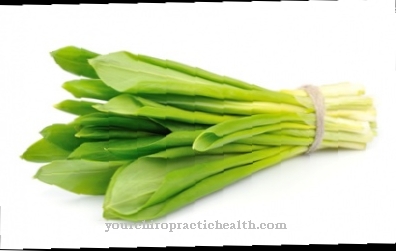Oily skin is a dermatological disease that affects many women and men. Young women in particular suffer from it and are constantly looking for ways and means to get rid of this problem of oily skin - preferably permanently.
What is oily skin?

Oily skin is when certain areas of the face are covered with an oily, greasy film at certain times or permanently.
The upper layer of the skin, the so-called horny layer or hyperkeratosis, is thickened in this disease and the pores of oily skin are often clogged due to the overproduction of sebum. But not only the face can be affected, other parts of the body also tend to have oily skin. If the scalp is affected, the sufferer tends to have an oily hairline.
There are two manifestations of oily skin: On the one hand, seborrhoea oleosa, which shows the typical complexion with the light film of oil, which looks shiny and shiny, on the other hand, seborrhoea sicca, which leads to dandruff and dryness despite oily skin, and an unpleasant one for the person concerned A feeling of tension and red, scaly spots are noticeable.
causes
But how is oily skin created with this shiny, oily or flaky film? At a young age, especially during puberty and teenage years, the skin produces more sebum in the glands due to the beginning hormonal changes.
Women, too, can often observe oily skin and blemishes shortly before or during menstruation or during pregnancy, which is also due to the changing hormone status.
However, hormone changes or overproduction are not always the cause of oily skin; stress, the use of certain medications, predispositions and malnutrition and malnutrition as well as excessive consumption of alcohol or nicotine can cause and favor oily skin.
There are also other diseases that have oily skin as a side effect or symptom - for example Parkinson's or ovarian diseases.
Diseases with this symptom
- Hormonal imbalances
- acne
- Ovarian inflammation
- Seborrhea
- Parkinson's
- Adrenal insufficiency
- Menopause
- alcoholism
- Contact allergy
course
As already described, the pores of oily skin are often clogged due to the excessive production of the sebum glands, which in addition to the shiny and moist appearance can lead to other problems such as pimples, blackheads and blemishes.
During puberty, oily skin is very often associated with mild to severe acne, which those affected can hardly get under control themselves. Mostly they experiment with various means of combating or masking symptoms, which, if treated incorrectly, can often lead to an aggravation of oily skin.
Excessive powdering, for example, can strain and clog the affected pores and make the skin blemishes even worse. Targeted drying of the oily skin can also cause severe skin irritation, which in the worst case can lead to allergies and eczema.
Complications
In naming the complication, the whole health disorder should be taken into account. A complication in medicine is a consequence of a disorder or the side effect of a preparation if it was used against this health disorder. Complications can therefore arise in the event of non-treatment or therapy.
Oily skin is a possible complication of hormonal imbalances, for example during puberty or menopause. Likewise, oily skin may again lead to complications like acne. Oily skin is caused by the overproduction of fat in the sebum glands. Complications usually arise from an unhealthy diet. Oily skin can be a warning sign of bacterial skin infections. In order to avert any complications, a dermatological examination should follow after the first symptoms flare up.
Thereafter, the patient should be treated with appropriate ointments in the course of eliminating complications such as oily skin. For this purpose, a plan can be drawn up for the subsequent course of action against oily skin or the underlying health disorder. Oily skin, on the other hand, is just one of the complications caused by various skin diseases. Eating healthy food, abstaining from alcohol and nicotine, as well as adequate facial care and can avoid oily skin. Occasionally, a low-fat diet is useful. Various preparations promote oily skin and are therefore not recommended for some skin diseases.
When should you go to the doctor?
Many of its owners can only half-heartedly enjoy the consolation that oily skin is less prone to wrinkles. They suffer too much from the shiny and coarse-pored complexion. In addition, with oily skin, there is a greater willingness to deal with blemishes. When is oily skin just a cosmetic problem? When is it a case for the specialist?
The oily sheen of oily skin is almost always due to an overproduction of the sebum glands. This in turn is caused by the androgens, male sex hormones. Not only men, but women too have androgens in their bodies, albeit in much smaller amounts than men. If the above-average activity of the sebum glands shows itself mainly as shiny skin, it is sufficient to mask the unwanted shine with appropriate skin care products and, if necessary, to see a beautician.
The situation is different with too much androgens. In women in particular, an excess of this can have other undesirable effects such as a lady's beard or other unwanted hair growth. Hormone therapy prescribed by a doctor can curb androgen production and improve the appearance of the skin. This method is also often successful with skin blemishes such as acne. In addition, numerous other treatment methods for oily skin are available to dermatologists. He is also informed about diseases that are accompanied by oily skin. A medical check-up (e.g. to the dermatologist) makes sense for oily skin.
Doctors & therapists in your area
Treatment & Therapy
Home remedies ↵ for oily skin In order to be able to treat oily skin in a targeted manner, it is advisable to regularly care for and cleanse the affected skin areas. In the morning and in the evening, the oily skin should be cleaned with a gentle washing lotion, the pH of which should ideally be below 6.
The important thing here is the perfect cleaning of make-up residues, skin flakes and dirt so as not to put any further strain on the oily skin. The belief that dehydrating soaps and lotions can fight oily skin is unfortunately invalidated by the fact that drying skin will only react by producing even more oil, so keep your hands off such products.
Oily skin also needs light moisturizing care, but it should be used sparingly and specifically. A weekly peeling of the oily skin promotes a clean complexion and helps against clogged pores and the resulting problems. Special care products for oily skin are available in drug stores and pharmacies.
Outlook & forecast
Oily skin does not necessarily have to lead to complications and a doctor does not have to be consulted in every case. If the oily skin is not treated, the course of the disease depends very much on the hygiene of the person concerned. If the hygiene is very poor, then the oily skin will usually not go away on its own and thus remain oily.
Oily skin is often unaesthetic. It can also happen that inflammations and wounds develop on the skin due to poor hygiene. This mainly happens when an itch develops.
Oily skin can be treated with ordinary soaps and shower gels, and results are usually immediate. In a few cases, oily skin is the result of repeated showering, as this destroys the skin's natural protective layer. In this case, showering should not be repeated as often.
With targeted treatment, the symptom can be eliminated very quickly. Consultation with a doctor is not necessary in most cases. However, if the skin suddenly becomes oily and the symptom does not go away after washing, a doctor can be consulted.
prevention
Unfortunately, oily skin cannot really be prevented in a meaningful way, but by daily and thorough cleaning of the vulnerable skin areas, by targeted treatment of problem areas and with the right make-up and care products, you can counteract and stop it and ensure that oily skin does not do that Can affect and even cloud well-being.
You can do that yourself
Oily skin is usually a symptom of poor or improper personal hygiene. Anyone who suffers from oily skin does not have to see a doctor immediately and can take measures against this problem themselves.
If you use too many care products, you ensure that the skin's natural protection does not remain. In this case, the skin reacts with relubrication. However, since the fat cannot be absorbed directly, the skin itself remains oily. This can also happen if a person takes too many showers or if the skin comes in very frequent contact with water. Here, oily skin can be avoided by not showering too often. Only those cosmetics should be used that are gentle on the skin and as pH-neutral as possible. This does not destroy the skin's natural protective layer.
On the other hand, infrequent personal hygiene can also lead to oily skin. If you only rarely shower or use care products, you should increase these intervals and thus wash the oil off the skin. Oily skin can also indicate a poor diet. It is often caused by fatty and sweet foods when ingested in excess.



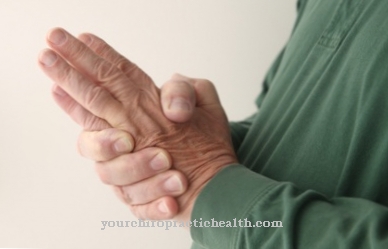
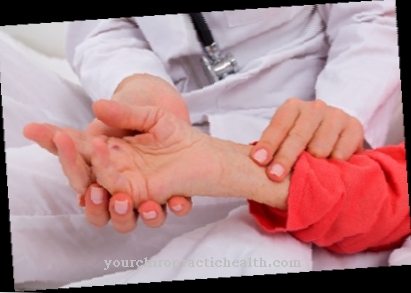



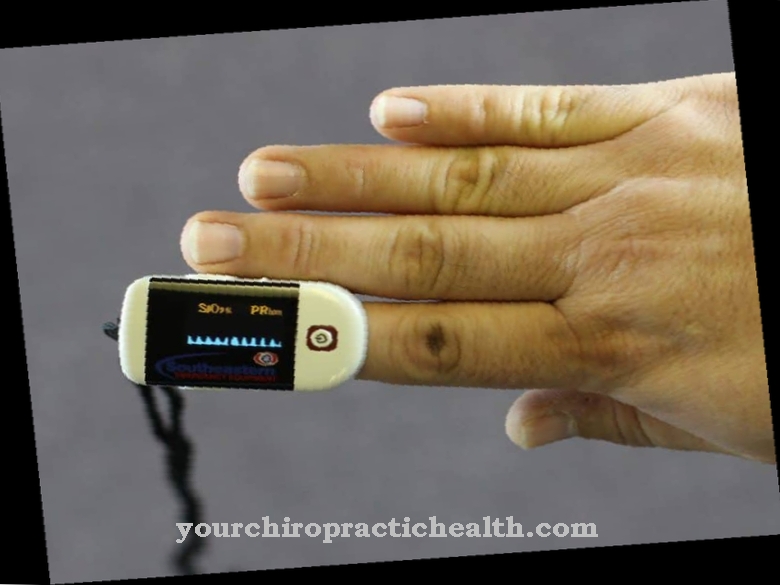
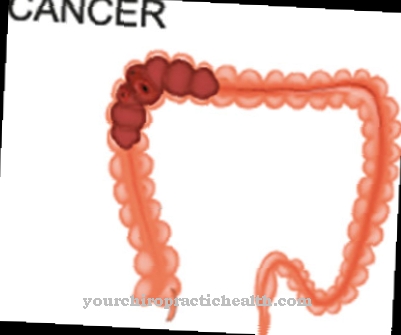


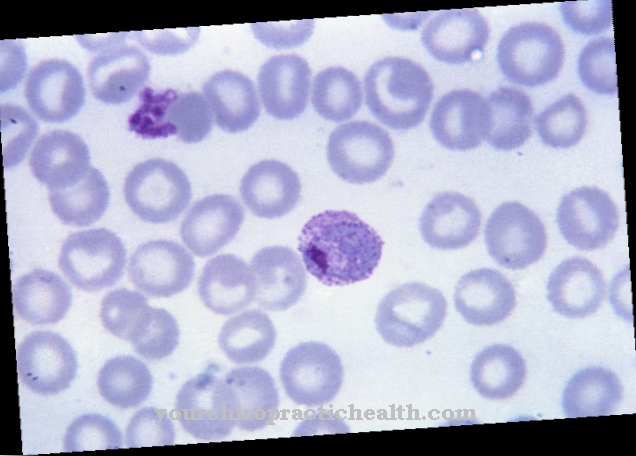


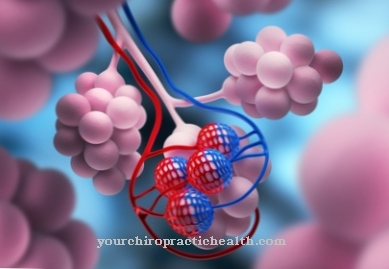

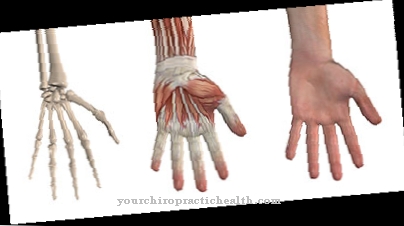

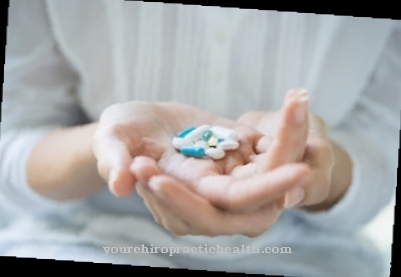

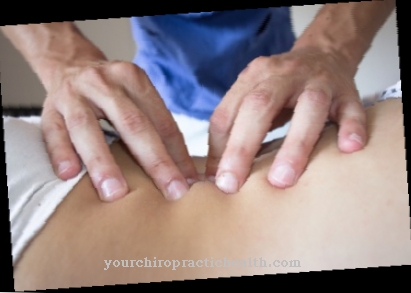


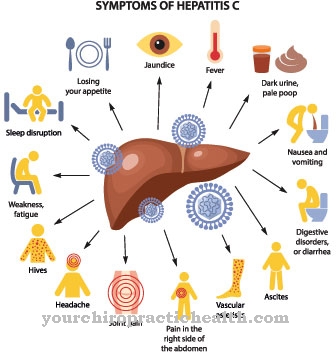
.jpg)


